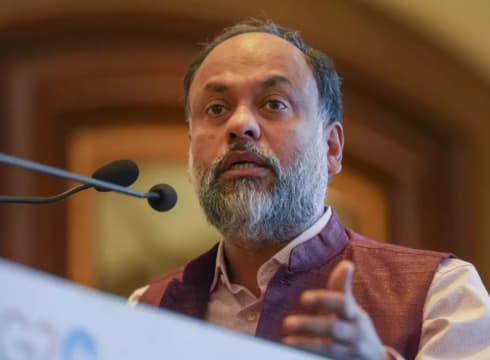The IRDAI is currently at a juncture marked by personalised offerings and shifting consumer preferences, said chairperson Debasish Panda
Panda’s comments come as India has witnessed a sharp increase recently in insurance adoption across multiple products in the country
The IRDAI launched the ‘Insuring India by 2047’ scheme in November 2022 to ensure that every citizen has adequate insurance coverage by 2047
Inc42 Daily Brief
Stay Ahead With Daily News & Analysis on India’s Tech & Startup Economy
According to the Insurance Regulatory and Development Authority of India (IRDAI) chairperson Debasish Panda, technologies such as artificial intelligence (AI) and machine learning (ML) within the insurtech sector will be harnessed throughout the insurance value chain.
“AI algorithms combined with machine learning models and predictive analysis will be leveraged to make underwriting an essential process in the insurance industry. Process automation will help increase the speed of traditional processes that require manual intervention. Further, conversational AI will be harnessed in the insurance industry throughout the value chain and will help customers by assisting them during various stages of insurance procurement,” said Panda.
Panda was speaking during a session at the Global Fintech Festival, 2023.
The IRDAI chairperson also noted that products such as smart contracts, parametric triggers and decentralised insurance would be the future of insurtech in India.
“Accessibility, availability, awareness, choiceness, healthy competition all led by technology is the way forward,” he added.
Panda also said that the sector regulator was anticipating a future where insurers can manage significant data sources, harnessing quantum computing to revolutionise risk assessment and decision-making, thereby significantly improving the lifecycle.
India’s insurtech segment has minted unicorns such as Policybazaar, Acko and Digit, alongside soonicorns such as Turtlemint and is set to reach a market opportunity of $307 Bn by 2030, growing at a CAGR of 17% between 2022 and 2030, according to an Inc42 report.
The sector regulator also is working to improve the sector’s adaptability and responsiveness to ultimately improve the insurance life cycle.
“IRDAI is actively pursuing reforms in the sector to enhance its adaptability and responsiveness. We are currently at a juncture marked by personalised offerings and shifting consumer preferences,” Panda said, adding that the regulator is exploring flexible, do-it-yourself insurance products, leveraging advisory technologies and digital assistants.
Panda’s comments come as India has witnessed a sharp increase recently in adoption across multiple products in the country. For instance, ever since the COVID-19 pandemic, there has been a rise in health-related policies in India.
The year 2020 alone witnessed a 40% increase in health insurance premium collections during the year, per a Forbes report. Further, a report by Mordor Intelligence indicated that while the health insurance market in India was growing at a CAGR of 24%, the growth rate reached 34% during the pandemic.
Despite this, penetration in India stands at around 5% of the population, comparable to other financial products such as credit cards.
To improve the situation, the IRDAI launched the ‘Insuring India by 2047’ scheme in November 2022, “where every citizen has an appropriate life, health and property insurance cover and every enterprise is supported by appropriate insurance solutions and to make Indian insurance sector globally attractive.”
The plan includes introductions of a regulatory sandbox, solvency norms for general and life insurers and an increase in tie-up limits for intermediaries, among other initiatives.
{{#name}}{{name}}{{/name}}{{^name}}-{{/name}}
{{#description}}{{description}}...{{/description}}{{^description}}-{{/description}}
Note: We at Inc42 take our ethics very seriously. More information about it can be found here.


